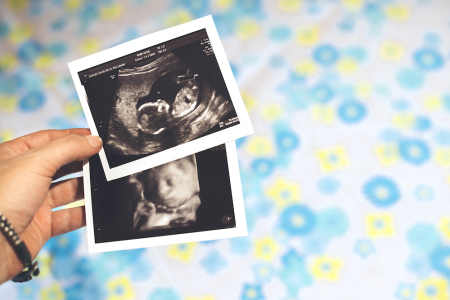Georgia Supreme Court reinstates heartbeat law restricting abortion after 6 weeks

The Georgia Supreme Court has reinstated a state law prohibiting most abortions performed after an unborn baby's heartbeat can be detected, which is usually around six weeks into gestation.
In an order released Monday, Georgia's highest court blocked enforcement of a ruling from the Superior Court of Fulton County that struck down the heartbeat abortion ban while legal proceedings continue.
All the justices who participated in the case concurred with the order, except Justice John J. Ellington, who concurred in part and dissented in part.
Ellington authored an opinion stating that "the State fails to show any reason for urgency that goes beyond their underlying arguments in favor of allowing the State to prevent women from deciding whether to terminate a pregnancy after embryonic cardiac activity can be detected and before a fetus is viable."
"The parties' competing arguments about the harm flowing from either the enforcement or the non-enforcement of the statutory provisions at issue will form the crux of the appeal to come and should not be predetermined in the State's favor before the appeal is even docketed," he wrote.
Clare Bartlett, executive director of the Georgia Life Alliance, a pro-life organization, applauded the ruling in a statement shared with LifeNews on Monday.
"There's no there's no right to privacy in the abortion process because there's another individual involved," Bartlett stated. "It goes back to protecting those who are the most vulnerable and can't speak for themselves."
The American Civil Liberties Union of Georgia, which is helping to represent those trying to strike down the law, denounced the state supreme court order.
"Elected officials in our state continue their disrespect of Georgia women, treating our bodies as state-owned property," ACLU of Georgia Executive Director Andrea Young said in a statement. "We will persist, using all lawful means to restore dignity, full citizenship and a right to privacy for Georgia's women."
Also known as the Living Infants Fairness and Equality Act, the law prohibits abortions after a baby's heartbeat becomes detectable, with exceptions being made in cases of rape, incest, life-threatening medical emergency for the mother, or if the baby is not viable.
Passed in 2019, the legislation was initially declared unconstitutional. However, after the U.S. Supreme Court overturnedRoe v. Wade in June 2022, declaring there is no constitutional right to abortion, the law went into effect.
On Sept. 30, Fulton County Superior Court Judge Robert McBurney blocked the law, ruling that it violated right-to-privacy protections under the state constitution. McBurney previously ruled against the ban in 2022 amid a lawsuit filed by the pro-choice advocacy group SisterSong Women of Color Reproductive Justice Collective. The Georgia Supreme Court reversed that ruling less than a year later.





















